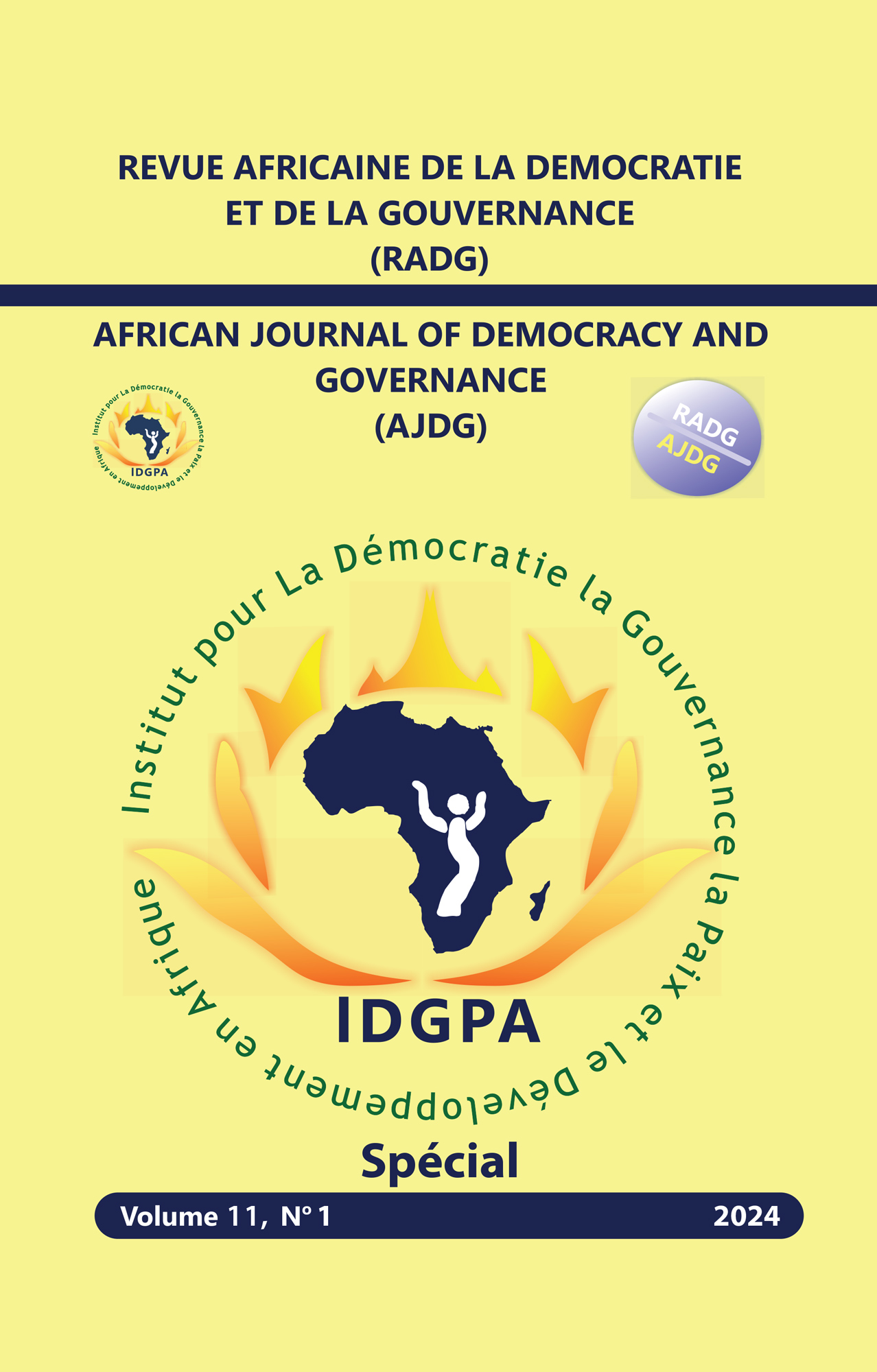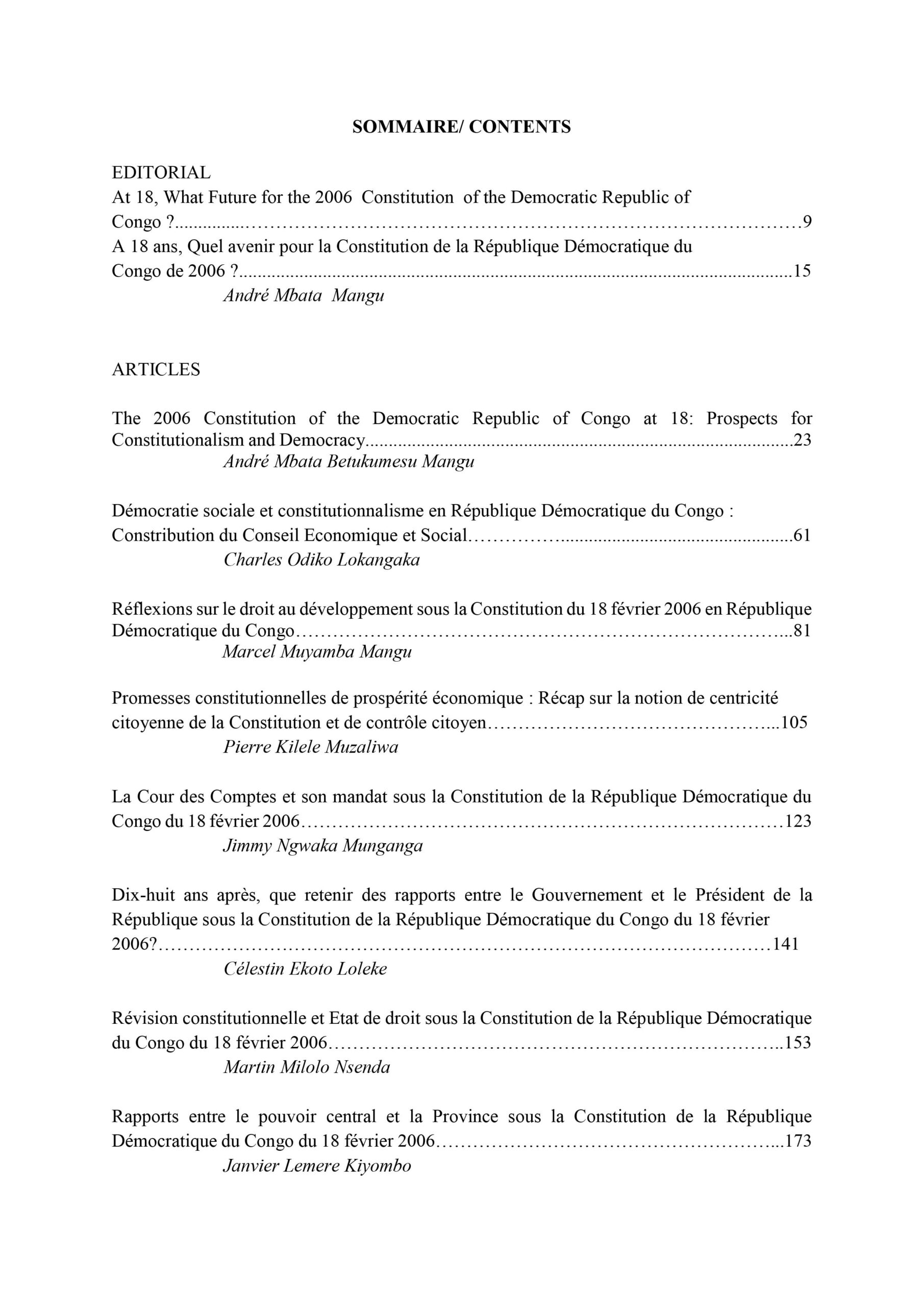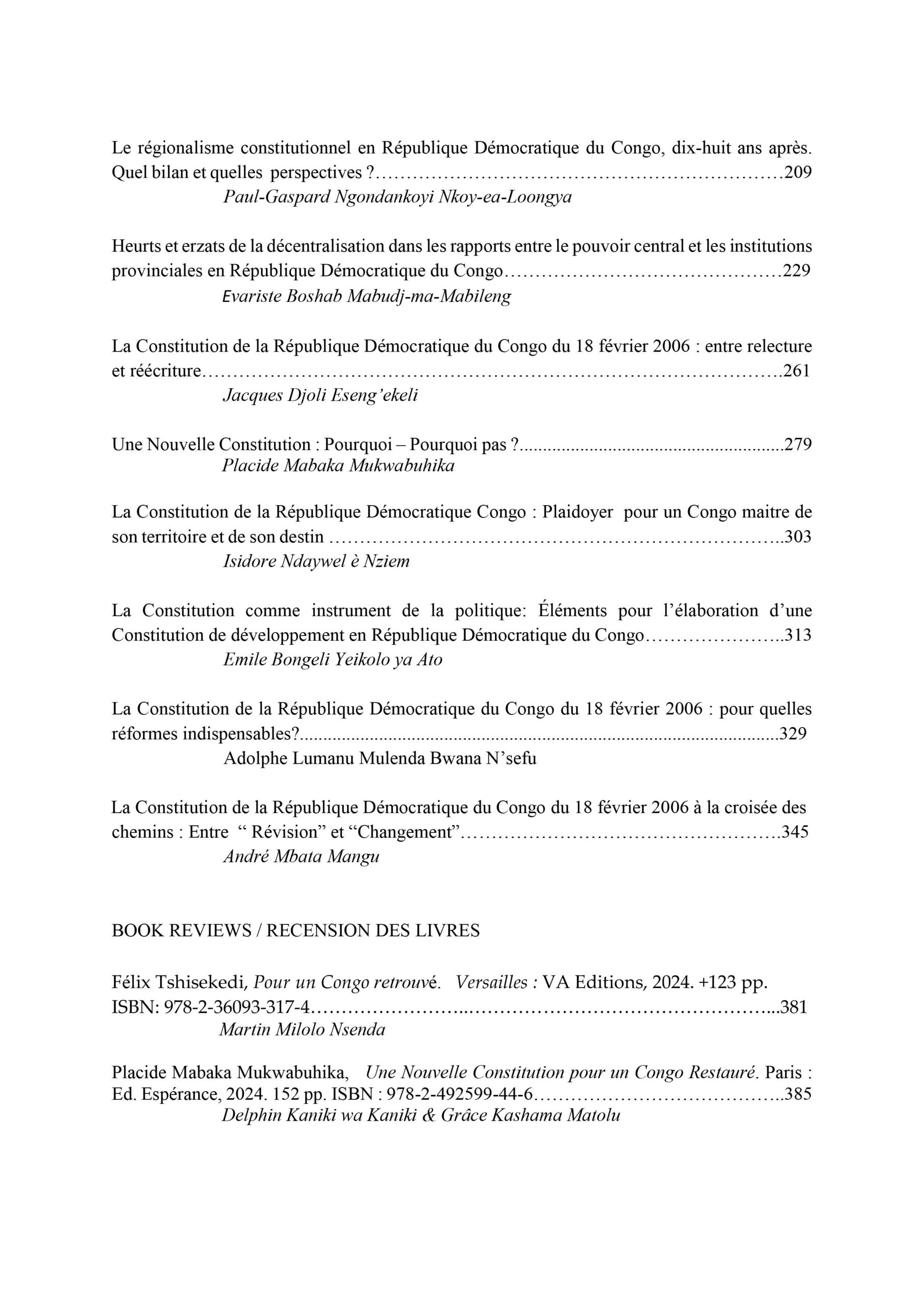Le régionalisme constitutionnel en République Démocratique du Congo, dix-huit ans après. Quel bilan et quelles perspectives?
$ 10,00
Paul-Gaspard Ngondankoy Nkoy-ea-Loongya, Professeur Ordinaire à la Faculté de Droit de l’Université de Kinshasa, Ancien Vice-Doyen chargé de l’Enseignement, Juge au Conseil d’Etat (en disponibilité), Ancien Directeur de Cabinet du Premier ministre, Député National, République Démocratique du Congo
Abstract
The celebration of the 18th anniversary of the Constitution of the Democratic Republic of Congo (DRC) presents many legal experts with yet another opportunity to suggest its revision or change because of some obstacles encountered on the ground in relation to its enforcement. In this general trend, constitutional regionalism as one of the fundamental options adopted during the “Inter-Congolese Dialogue” held in Sun City (South Africa) is under threat since some propositions of constitutional change or amendment impact on its substance or some of its manifestations. The article revisits some features of this form of the State and reflects on the challenges that its faces in the DRC. It argues that the Constitution can be amended according to its Articles 218 to 220. However, amending Article 220, which is an “entrenched” provision would only be possible in the case of a constitutional vacuum, at the initiative of an elected constituent Assembly and after the amendment by the constituent assembly has been approved by the people themselves through a referendum. Proceeding otherwise would amount to “sawing the branch of the tree on which the people and their representatives are seated” given that it is the Constitution that grant them the right to exist and the authority to act by law.
Résumé
La célébration des 18 ans de la Constitution de la République Démocratique du Congo (RDC) offre, une fois de plus, l’occasion à plusieurs spécialistes d’en proposer la révision, voire même le changement, à cause de quelques difficultés rencontrées sur terrain. Dans ce courant général, le régionalisme constitutionnel comme l’une des options fondamentales levées pendant le “Dialogue inter-Congolais” de Sun City (Afrique du Sud) se trouve être menacée, tant certaines propositions de révision ou de changement de la Constitution touchent à sa substance ou à quelques-unes de ses manifestations. Cet article revisite certains traits caractéristiques de cette forme d’État et passe en revue certains défis auxquels elle est confrontée en RDC. Il affirme que la Constitution est toujours révisable conformément aux articles 218 à 220. Cependant, la révision de l’article 220 qui est “verrouillé” n’est possible qu’en cas de vide constitutionnel, à l’initiative d’une une assemblée constituante élue et après l’adoption de cette révision par référendum. Agir autrement serait “ scier la branche de l’arbre sur laquelle le peuple et ses représentants sont assis”, dans la mesure où c’est cette Constitution qui leur donne tant le droit d’exister que le titre d’agir juridiquement.
Description
Ngondankoy Nkoy-ea-Loongya, P.G. « Le régionalisme constitutionnel en République Démocratique du Congo, dix-huit ans après. Quel bilan et quelles perspectives? », African Journal of Democracy and Governance, Vol 11, No 1, 2024, pp 209-228
Paul-Gaspard Ngondankoy Nkoy-ea-Loongya, Professeur Ordinaire à la Faculté de Droit de l’Université de Kinshasa, Ancien Vice-Doyen chargé de l’Enseignement, Juge au Conseil d’Etat (en disponibilité), Ancien Directeur de Cabinet du Premier ministre, Député National, République Démocratique du Congo
Abstract
The celebration of the 18th anniversary of the Constitution of the Democratic Republic of Congo (DRC) presents many legal experts with yet another opportunity to suggest its revision or change because of some obstacles encountered on the ground in relation to its enforcement. In this general trend, constitutional regionalism as one of the fundamental options adopted during the “Inter-Congolese Dialogue” held in Sun City (South Africa) is under threat since some propositions of constitutional change or amendment impact on its substance or some of its manifestations. The article revisits some features of this form of the State and reflects on the challenges that its faces in the DRC. It argues that the Constitution can be amended according to its Articles 218 to 220. However, amending Article 220, which is an “entrenched” provision would only be possible in the case of a constitutional vacuum, at the initiative of an elected constituent Assembly and after the amendment by the constituent assembly has been approved by the people themselves through a referendum. Proceeding otherwise would amount to “sawing the branch of the tree on which the people and their representatives are seated” given that it is the Constitution that grant them the right to exist and the authority to act by law.
Résumé
La célébration des 18 ans de la Constitution de la République Démocratique du Congo (RDC) offre, une fois de plus, l’occasion à plusieurs spécialistes d’en proposer la révision, voire même le changement, à cause de quelques difficultés rencontrées sur terrain. Dans ce courant général, le régionalisme constitutionnel comme l’une des options fondamentales levées pendant le “Dialogue inter-Congolais” de Sun City (Afrique du Sud) se trouve être menacée, tant certaines propositions de révision ou de changement de la Constitution touchent à sa substance ou à quelques-unes de ses manifestations. Cet article revisite certains traits caractéristiques de cette forme d’État et passe en revue certains défis auxquels elle est confrontée en RDC. Il affirme que la Constitution est toujours révisable conformément aux articles 218 à 220. Cependant, la révision de l’article 220 qui est “verrouillé” n’est possible qu’en cas de vide constitutionnel, à l’initiative d’une une assemblée constituante élue et après l’adoption de cette révision par référendum. Agir autrement serait “ scier la branche de l’arbre sur laquelle le peuple et ses représentants sont assis”, dans la mesure où c’est cette Constitution qui leur donne tant le droit d’exister que le titre d’agir juridiquement.
Mots-clés: Assemblée constituante ; Changement constitutionnel ; Circonscriptions administratives ; Constitution du 18 février 2006 ; Pouvoir central ; Provinces ; Référendum ; Régionalisme politique ; Régionalisme constitutionnel ; République Démocratique du Congo ; Révision constitutionnelle
Seuls les clients connectés ayant acheté ce produit ont la possibilité de laisser un avis.




Avis
Il n’y a pas encore d’avis.